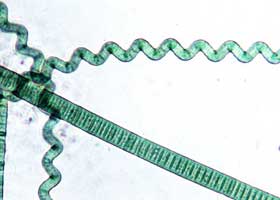organic spirulina as good as olive oil?
As advised by olive oil importers G&N, spirulina is a rich source of nutrients, containing up to 70% protein, B-complex vitamins, phycocyanin, chlorophyll, beta-carotene, vitamin E, and numerous minerals. In fact, spirulina contains more beta-carotene than carrots. According to G&N, just like olive oil, spirulina has been used since ancient times as a source of nutrients and has been said to possess a variety of medical uses, including as an antioxidant, antiviral, antineoplastic, weight loss aid, and lipid-lowering agent. Preliminary data from animal studies demonstrate effectiveness for some conditions as well as safety, although human evidence is lacking. Based on available research, no recommendation can be made either for or against the use of spirulina for any indication.
Uses based on scientific evidence:


